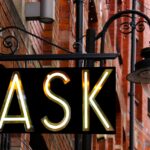If you’ve queried your manuscript around and found no takers, don’t give up yet! Instead of shelving your project, there are other options to consider. You could submit your work to a small press or self-publish. But which route is best for you? I’ll lay out the pros and cons of both below.

Small Presses:
When I say ‘small press’, I’m not talking about vanity or hybrid publishers. A small press will never ask you for money. They operate in a similar manner to the traditional, ‘big five’ publishers. But they generally publish a selective number of books each year. Because of this, most of them narrow their focus to one or two genres they specialize in. Which means it’s important to research them before you submit. Submitting to a small press doesn’t require an author to have an agent, but they will still be discerning about vetting the work. It’s still not a guaranted path to publication as they will not accept every author who submits work to them.
Some advantages to working with a small press—
Advances
A handful of small presses will offer authors an advance upon signing, but not all. If they do, it is likely to be more modest than if you sign with a big publisher—usually within the 1-5K range. This money will count toward your sales. But if you do not earn it out, you will never be asked to pay it back. Even if a small publisher doesn’t offer an advance, they generally give authors a larger percentage of royalties than the big five.
Editing and Release
Small publishers will work with authors on the editing process, interior formatting, and creating a cover for your book. All at no charge to you. Another advantage to working with a small press is that they often work faster than the big five. So you will get your book into the hands of readers sooner. Usually within six months as opposed to a year or longer with larger publishers.

Marketing
Small presses do their best to market your work. But they will still expect you to help get the word out to hype your book as well. That is no different from any path you take. Having an active online/social media presence is mandatory in every one of these scenarios.
Appearance
Because your book is being released/backed by a traditional, albeit smaller, publisher, that will legitimize it in the eyes of some readers, thus helping potential sales. And because these publishers have experience, in most cases, they will produce a high quality product.
Disadvantages to small press—
Control
If you are someone who likes to be in total control of your work, this isn’t the route for you. You might not always have a say in some aspects of the creative process. Such as how many rounds of edits the book goes through, what your final cover design looks like, or the price and distribution of the book. You will not have the option to make changes to the manuscript if you find yourself staring at a plethora of negative reviews upon release.
Also, you will not be able to take advantage of some of the perks Amazon offers to exclusive self-pubbers. These include subscription readers or putting your book on sale to promote it at various stages of your marketing plan. Those decisions will fall to the publisher. Some will be on top of advertising for the author or will work with an author closely to get word out, while others may not.

Rights
You will be signing your rights away to the publisher. Depending on the contract, it may mean indefinitely or for a limited period. If you find pre or post-pub date that you are unhappy with the publisher, you may not be able to get out of the contract, so think long and hard before signing. Do your homework, check their sales, look at the quality of the other books they have released, or ask to speak with some of the authors they have on board currently.

Self-Publishing:
Self-publishing sometimes gets a bad rap. That’s because there isn’t a lot of quality control happening within this area of publishing. Some work is great, while some is frankly pretty awful. You will find readers who are willing to risk taking a chance on your book because the cost of doing so is generally lower. On the other hand, you will encounter people who will not give your work a second glance regardless of price if they know it has been self-released. Here’s your opportunity to prove those people wrong.
Advantages of self-publishing—
Clear Path
There are no gatekeepers, so you are guaranteed to get your work out there. You are in control of the quality of the product you put out. You can decide how much editing your manuscript requires, what cover design best reflects your story, how to creatively market it, and you can set the cost and choose the distribution channels.
No Wait
If you are impatient and don’t want to wait long to get your book into the big wide world, this is a great route for you. Depending on editing turn-around times, or cover designer times, you are more likely to have your book in readers’ hands within a few months after completing a first draft versus six months to even years with traditional presses. If you are someone who is confident in your writing and do not feel the need to get the stamp of approval of gatekeepers, nor want to go through the emotional toll of finding an agent/selling your book to a publisher, this is a perfect option.

Sole Owner
You will retain all of the rights to your work and you will receive a larger portion of the profits from sales.
Disadvantages—
Cost
Upfront costs can be a huge barrier for self-publishing authors, but if you are savvy, you can find freelance services that will cost less than what many vanity or hybrid presses charge authors, making self-publishing a more suitable option.
Commissioning Help
Finding people who can do the work at a decent cost while not sacrificing on quality can be tricky and will likely require more time and research upfront on the part of the author. There will be a learning curve. The upside to this is that it’s a great way to get your hands dirty and understand the many steps that go into publication. That way, if you decide to go another route later in your writing career, you’ll have grounded knowledge about all of the various stages of work required to get the job done.
Self-publishing authors can even learn to do some of the work themselves. For example, I took some editing courses so I would have a fairly clean manuscript that required fewer rounds of work, therefore the price was lower. I did all of my own interior formatting, uploading, and managing of the files to the various online retail sites. I would not, however, recommend proofreading your own work, nor would I consider making your own covers unless you have some background in graphic design. Seek out professionals who have great looking websites and offer services for decent rates. Check with other author friends to get recommendations. There are people out there who will do good work without putting you in debt from the start.

Initial Investment
If you decide to self-publish, you should be very careful about how much you are willing to invest initially, knowing that as a first time author, you might not recoup that money. I recommend setting a realistic budget that suits your financial situation. Figure out how much you can spend in order to produce a quality book without breaking the bank.
As an example, I know some authors who have paid upwards of 10k upfront just to have their book edited, formatted, and geta cover design. While they no doubt got a great final product, that money could be hard for some to earn back in sales alone. According to an online survey from selfpublishing.com, the median income for a self-published author in 2017 was less than $3,000. Some will certainly make more than that, while many will make less, but it’s important to not go into it expecting your book to become a NYT bestseller. As a self-published author, you are wagering on many factors: How much time and work you are willing to put into marketing? Do you have a large family/fan base/social media following? Is the book original/well written/polished? Will you follow up with more books and how soon after your first release?
Self Marketing
Marketing can add more costs upon publication. Again, promoting your work is something you will have to do whichever route you ultimately take in your publishing journey. One difference is that a self-published author will need to pay for their own advertising costs. Some popular methods include, but are not limited to: buying ads to run on Amazon, Bookbub, or other social media sites, getting editorial reviews, sending out advanced copies to newspapers or influencers, or running special promos/giveaways. You may even pay to do some of these things while working with a small press depending on what types of marketing plans they offer. The only difference is that some people will consider your work more legitimate and may be more willing to pay a higher price for it from a small press thus making your advertising more effective.
Self-publishing can be a very rewarding experience and many authors find awesome success with this route after some initial trial and error. There are great communities online to help answer questions and get you started.

So small press or self-publish? Whichever road you decide to take, just remember to do as much research as you can in order to find a path that fits your needs, wants, hopes, and desires as an author. Happy publishing!




Great insight! Thank you for sharing.
Great, really helpful blog!
[…] about some of our other member’s stories? Check out Jody Wenner’s publishing journey going solo and with a small […]